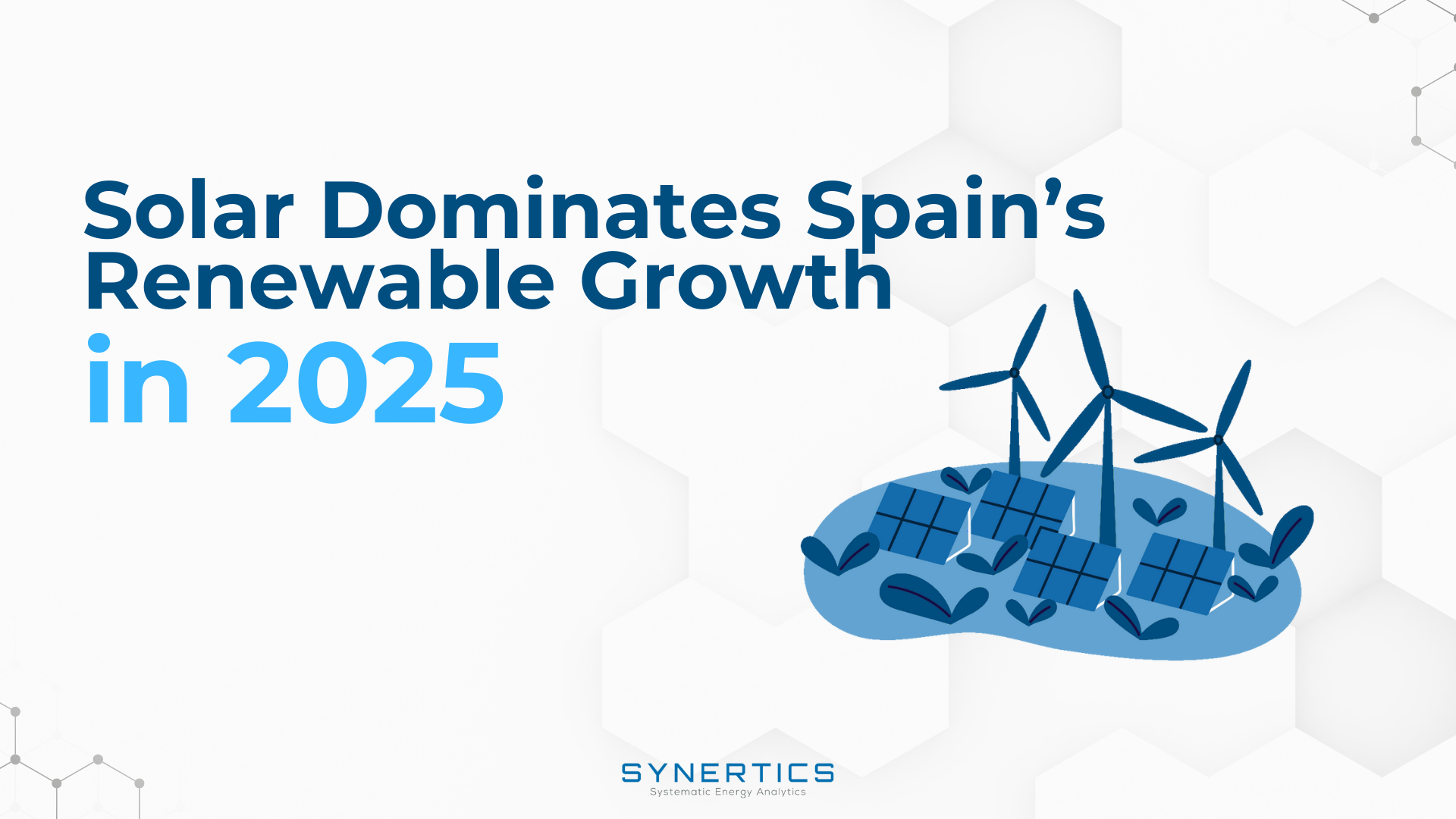Join us on our journey towards renewable energy excellence, where knowledge meets innovation.
In our latest Energy News Roundup, we look at the sharp rise in power prices in Portugal following its recent decoupling from Spain’s electricity grid, while the EU has postponed the rollout of 15-minute power trading reforms until September. In Germany, solar battery installations have surpassed the 2 million mark, and solar generation has reached record levels across much of Europe. Electricity prices showed mixed trends across the continent, and Greece completed a €1 billion undersea power cable connecting the mainland to Crete.

Greece Completes Undersea Power Cable Linking Crete to Mainland
Greece has completed a major undersea power cable linking the mainland to Crete, a 330-kilometer, €1 billion project expected to be fully operational this summer. Funded mainly by the EU, the cable aims to boost energy diversification and support Crete’s shift from fossil fuels to renewables. It is part of a broader plan, called the Great Sea Interconnector, to extend grid connections to Cyprus and Israel by the decade’s end, positioning Greece as a strategic energy hub in the Eastern Mediterranean.
However, broader expansion plans face challenges from financial disputes and maritime tensions with Turkey. Greece and Egypt also plan a separate undersea link bypassing Crete to connect directly to Athens.
Portugal Faces Higher Power Prices after Uncoupling from Spanish Grid
Following the April 28 blackout, Portugal suspended electricity imports from Spain for security reasons. This has led to a rise in power prices, with Portuguese electricity costing over four times more than in Spain (€43.94/MWh vs. €10.89/MWh on May 20). The difference of more than €33 per MWh represents one of the biggest disparities ever between the two countries since the creation of the Iberian Electricity Market (Mibel) in 2007. Limited wind production and reliance on costlier energy sources like gas and hydro have worsened the situation.
Interconnection capacity is now being gradually restored. From May 26 to June 2, Portugal will allow up to 2,500 MW of imports from Spain between 10 a.m. and 7 p.m.,and 2,000 MW during peak hours (9–10 a.m. and 7–8 p.m.), with no limits outside those times. Authorities expect full trading between the two countries to resume in the coming days.
European Power Prices Mixed as Solar Breaks Records
During the 3rd week of May major European electricity markets showed mixed price trends. Prices rose in Belgium, the UK, France, and Spain, while they fell in the Netherlands, Germany, Italy, the Nordics, and Portugal. Increased wind production helped lower prices in Germany, Italy, and Portugal, despite rising gas and CO2 allowance costs. Spain had the lowest average price (€18.19/MWh), while Italy had the highest (€95.80/MWh). Negative hourly prices occurred in most markets except the UK and Italy.
Solar production increased, with several countries breaking records. On May 13, Germany recorded its second-highest daily solar generation in history with 426 GWh. On May 15, Portugal reached an all-time daily solar production record of 26 GWh. Italy followed suit on May 18, registering its highest ever daily solar output for May at 147 GWh.
Germany surpasses 2 Million Solar Storage Systems
Germany has hit a major milestone with the installation of its two-millionth solar storage unit. In 2024 alone, around 600,000 new batteries were added, bringing total installed storage capacity to over 20 GWh, enough to cover daily electricity needs for 2 to 4 million two-person households. According to the German Solar Industry Association, home storage is now standard when installing new photovoltaic systems on private homes. Added to this is the recent surge in demand for large-scale storage systems in the megawatt class.
However, the German Solar Industry Association warns that outdated regulations are limiting further growth. The Association urges the government to modernise legal frameworks, simplify grid connection rules and introduce building privileges for battery storage.
EU Delays 15-Minute Power Trading to September
The Market Coupling Steering Committee (MCSC) has delayed Europe’s planned switch to 15-minute settlement periods in the Single Day-Ahead Coupling (SDAC) market from 11 June to 30 September, citing that some parties are not fully “non-technical ready.” The delay comes after the French exchange Epex Spot raised objections, stating it would vote against the planned 11 June launch due to “operational concerns” and “too many failures in testing.”
Until now, markets like Epex Spot traded electricity in rigid hourly blocks, limiting their ability to reflect short-term fluctuations in renewable generation, especially solar, which can vary greatly within an hour. The shift to shorter intervals aims to improve market flexibility and efficiency by better matching supply and demand, supporting renewable integration and reducing costly adjustments.

Insights
22nd Jan, 2026

Insights
12th Jan, 2026

Insights
12th Jan, 2026